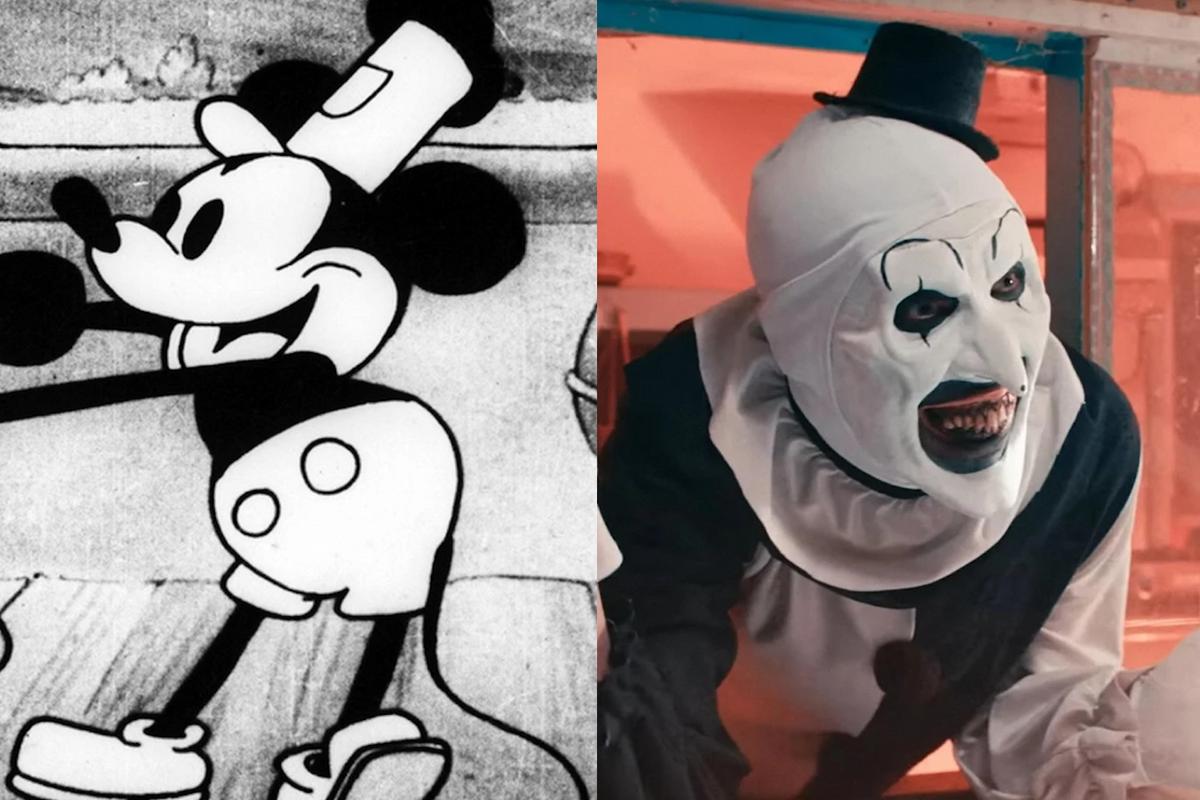In Hollywood, nothing is scarier than the public domain. Because once a film enters it, anyone can make a copy (or horror movie) of it, and it is perfectly legal
At the start of 2024, Walt Disney’s very first Mickey Mouse cartoon, “Steamboat Willie,” entered the public domain. Just a few months later it’s official: David Howard Thornton, the guy who plays the terrifying Art the Clown of the Terrifier franchise, will star in a “Steamboat Willie” inspired horror movie titled Screamboat directed by Steven LaMorte.
READ MORE: The Most Underrated Horror Movies of the 21st Century
Here is the official synopsis of the film via Bloody Disgusting:
Screamboat follows a group of New Yorkers on a late-night ferry ride that turns deadly when a mischievous mouse begins a rampage, targeting unsuspecting passengers. The unlikely crew must band together to thwart the murderous menace before their relaxing commute turns into a nightmare.
The film will supposedly feature “a mix of practical creature effects, miniatures, and cutting edge virtual production to showcase its very mischievous monster slashing his way through a ferry of fear.”
Ever since Winnie-the-Pooh: Blood & Honey went viral online, this concept of taking a classic children’s text and turning it into a low-budget exploitation film has been turned into a quickie horror formula. We’ve already gotten a Blood & Honey sequel, and there are horror films based on Bambi, Peter Pan, and Pinocchio all coming out. Then all these horror monsters will supposedly meet up in a Pooniverse crossover film. (The Poohniverse? The Poohniverse.)
If Screamboat is equally successful there’s no telling what other Disney-ish horror movies we could get down the line? Horror Donald Duck? Horror Goofy? Horror Pluto? Or is that basically just Cujo, which could draw a lawsuit from Stephen King? This could get legally tricky…

Iconic Characters in the Public Domain
These characters were created so long ago that their original texts are now in the public domain and no longer protected by copyright.

